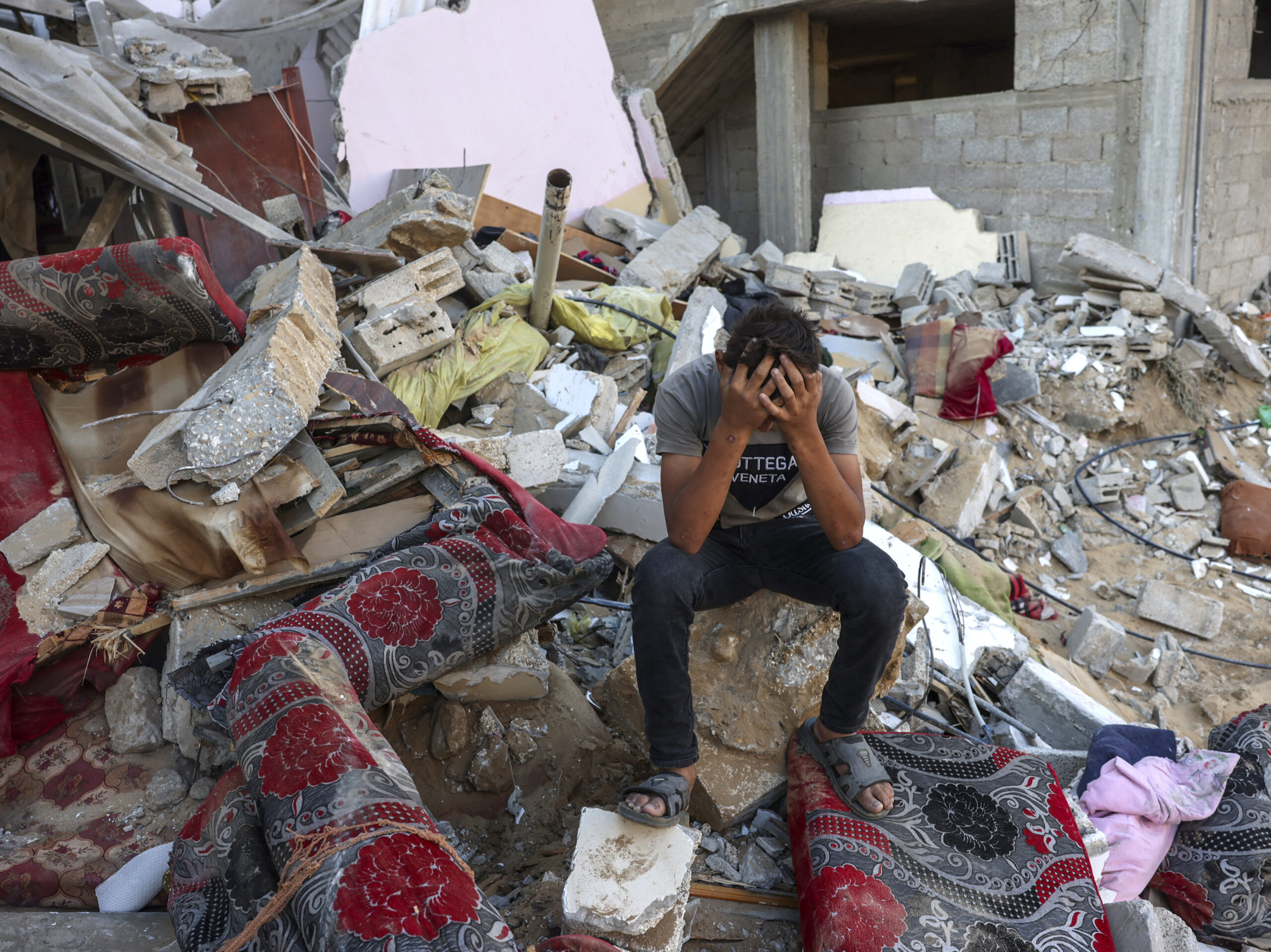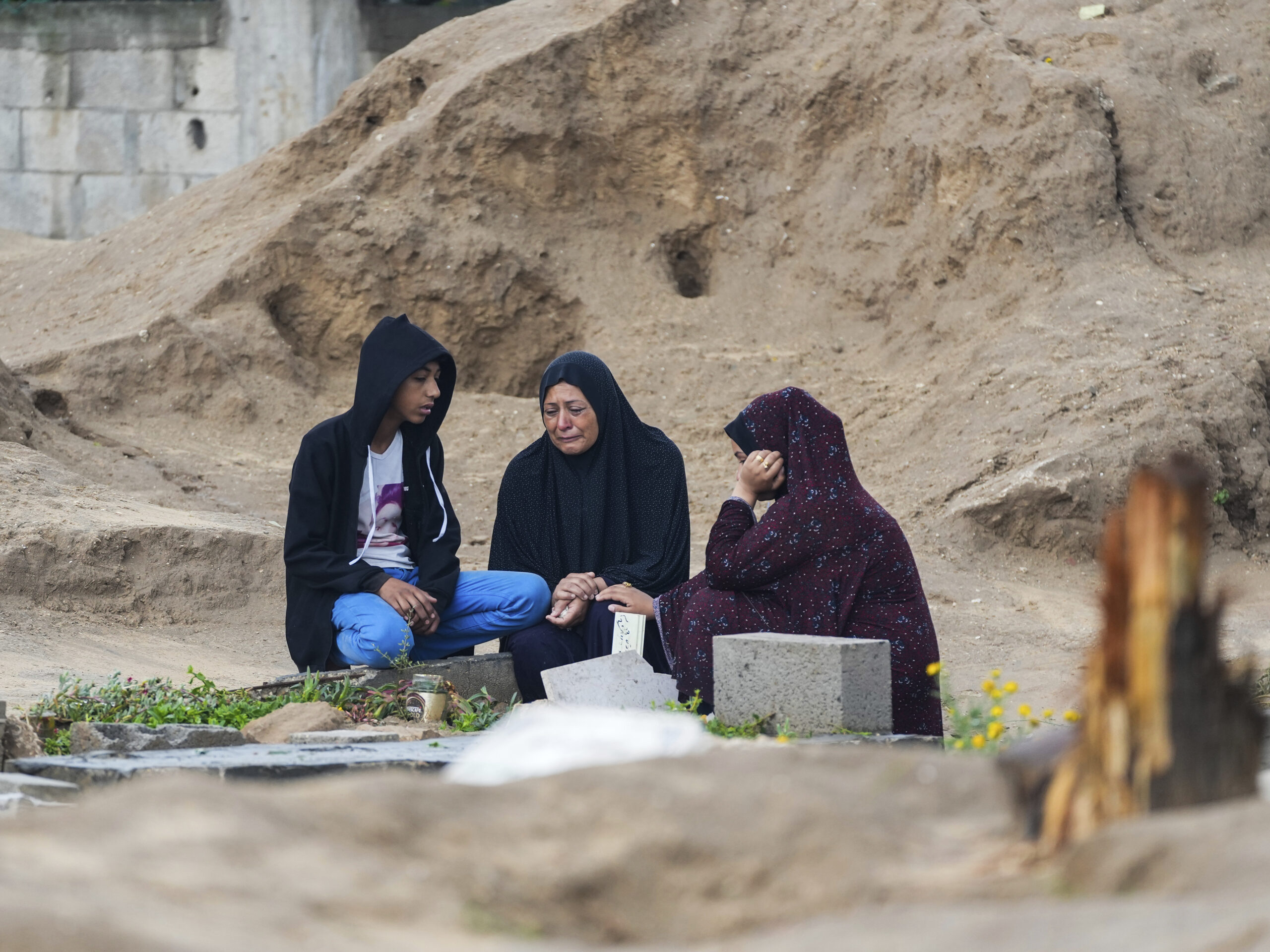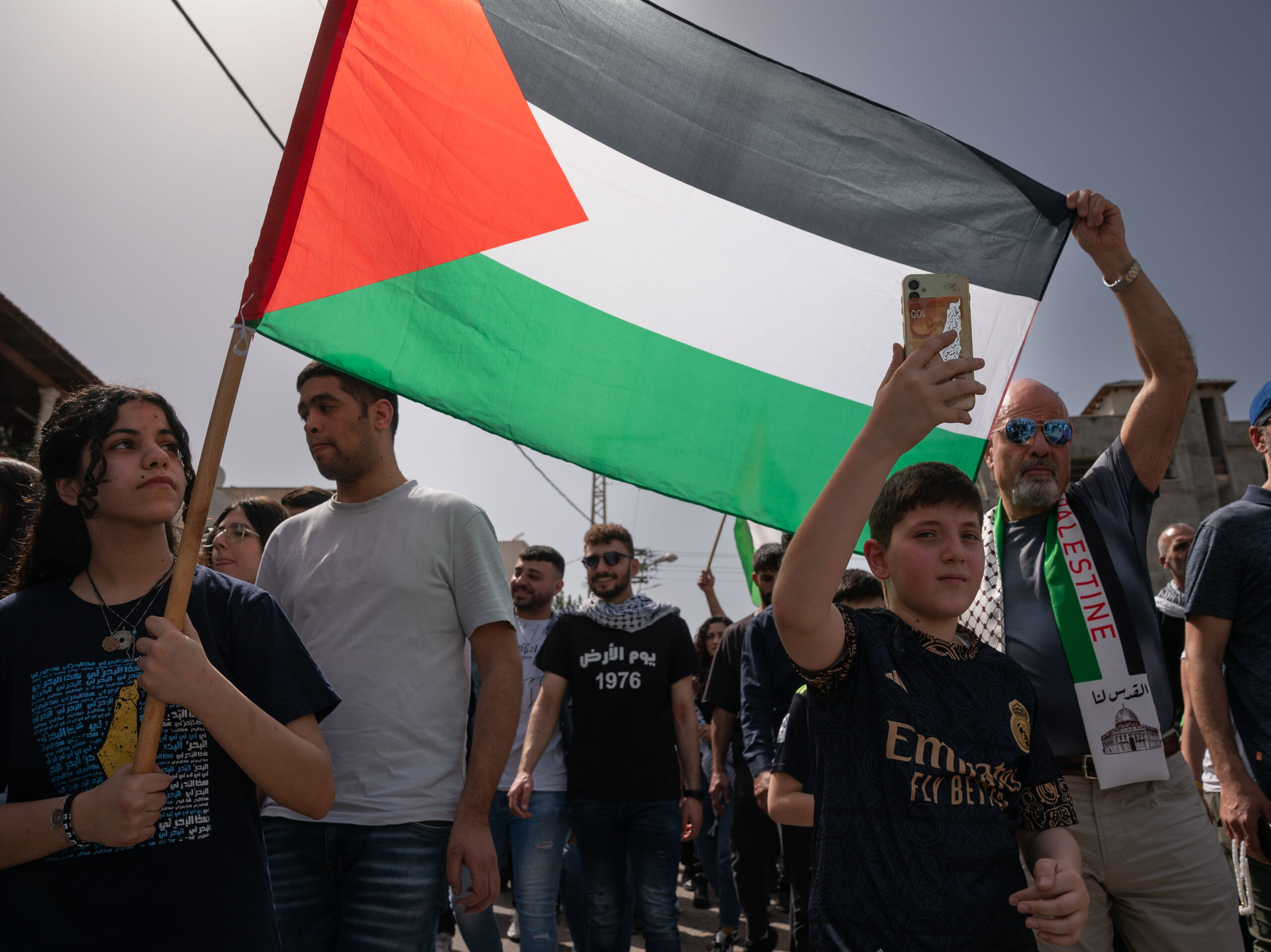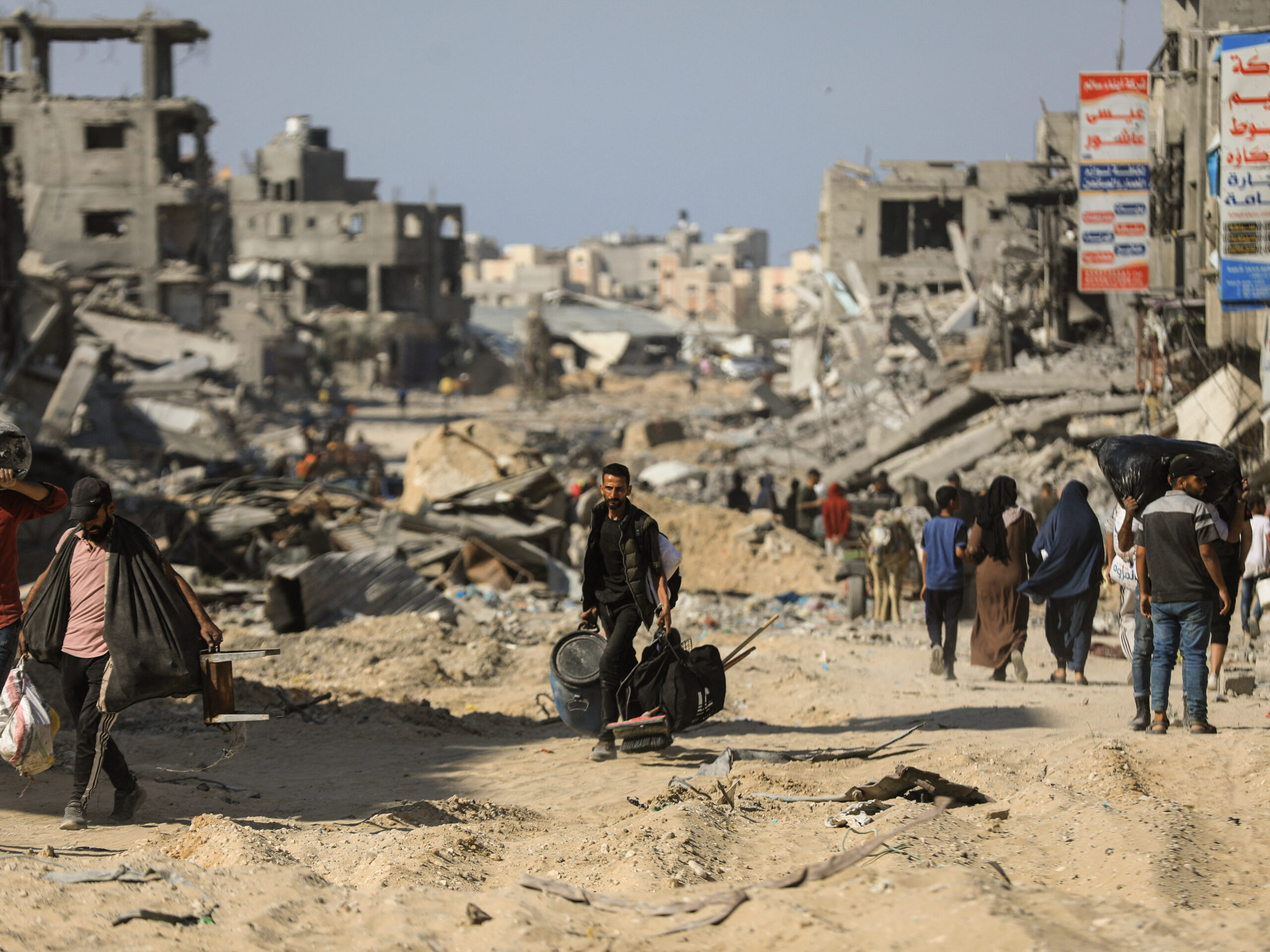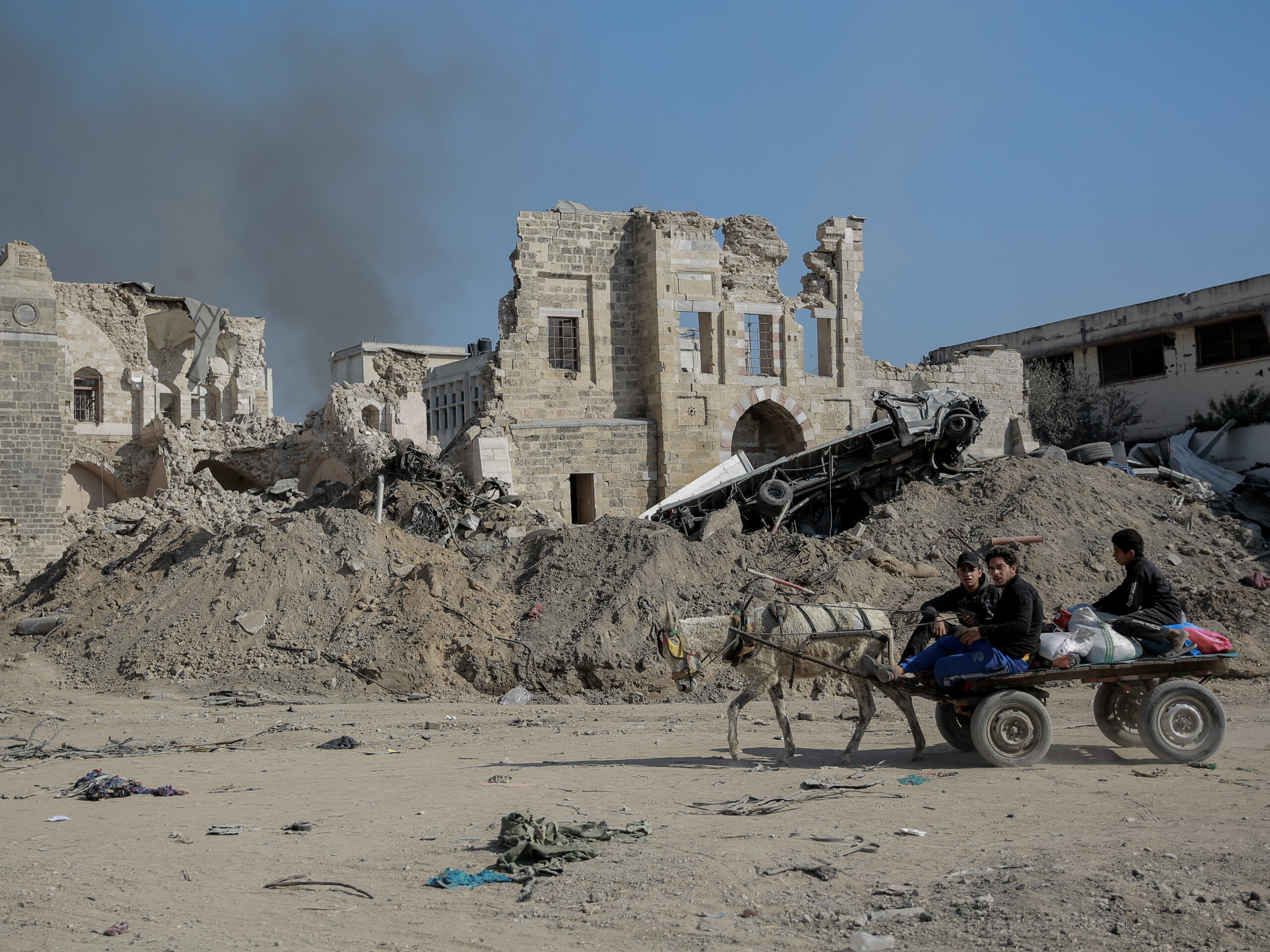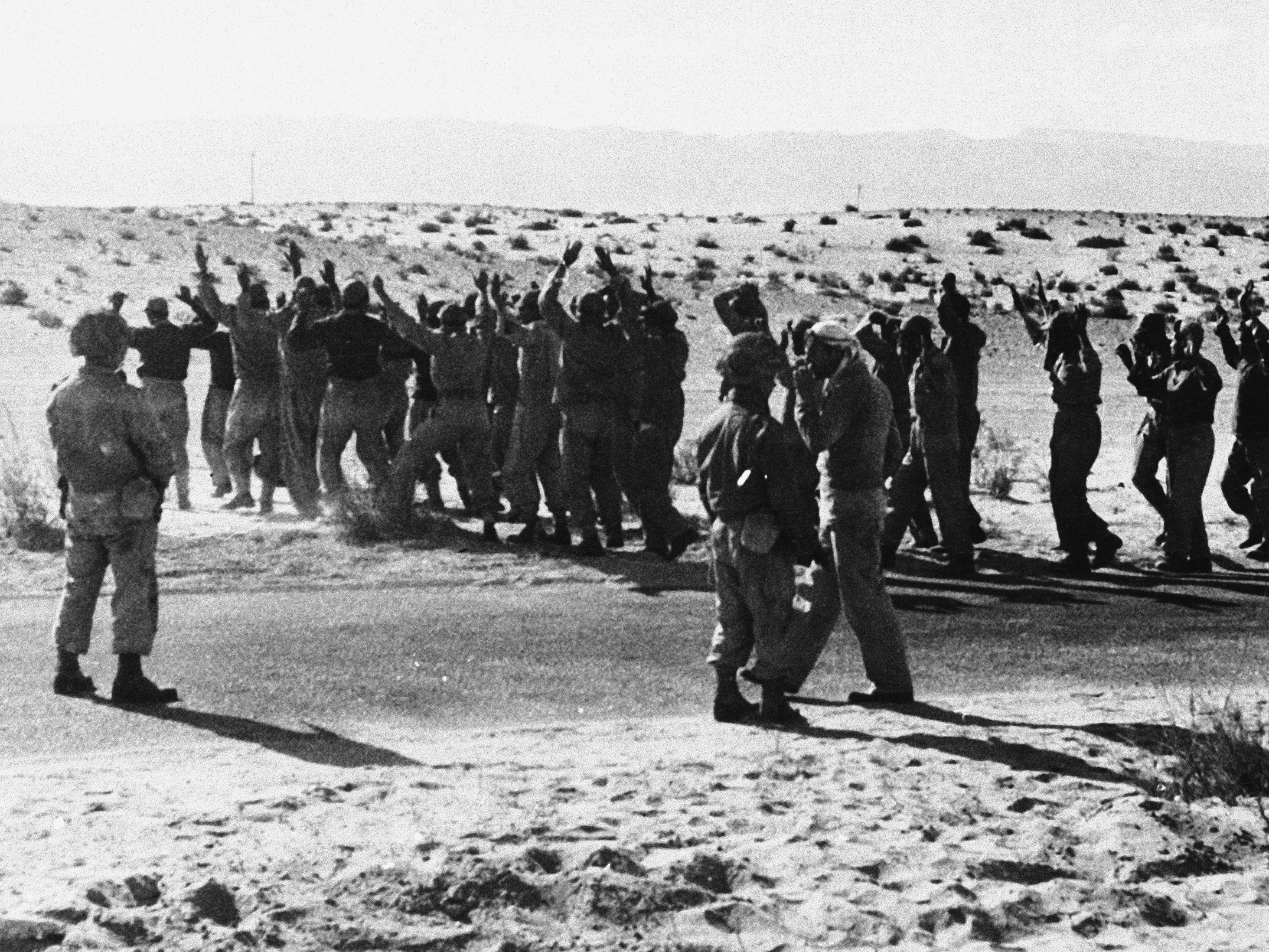Hamas unleashed its early morning rampage in southern Israel six months ago this Sunday, igniting the deadliest war ever between Israelis and Palestinians.
To look at how the war is reshaping the region, and where the war could be heading, a trio of NPR correspondents drew on their deep experience of reporting in the region, including the current conflict.
The three are Daniel Estrin in Tel Aviv; Jane Arraf, who’s based in Amman, Jordan; and Greg Myre, who’s based in Washington and has been working in the region.
Stay informed on the latest news
Sign up for WPR’s email newsletter.
The brutality of the surprise Hamas attack tapped into Israelis’ generational trauma from the Holocaust and it helps explain how Israelis have responded. Hundreds of armed civilian squads were formed. People’s hearts were hardened. A common Israeli phrase now, referring to the entire Palestinian population in Gaza, is, “There are no uninvolved civilians in Gaza.”
Israelis are glued to the news, but they’re not seeing the horrors of war that Palestinians are enduring in Gaza.
The war has devastated Gaza. Can you tell us how it has been transformed? Estrin:Gaza residents have been blown to pieces or buried under rubble in Israeli airstrikes that have flattened buildings. There’s no escaping the war, unless you’re wealthy or have connections to a foreign government that have allowed a limited number of people to leave the territory.
There’s not nearly enough food in Gaza, malnutrition is soaring, particularly among children, and the United Nations projects that a famine could be imminent in northern Gaza.
In a territory with more than 2 million Palestinians, most homes, roads, water systems, health facilities and historical landmarks have been mostly damaged or destroyed.
A Palestinian public opinion poll last month found 71 percent of Palestinians in the West Bank and Gaza supported the Hamas attack on Oct. 7. Many see it as a triumph of resistance to Israeli oppression. But only 1 in 5 Palestinians surveyed in the poll said they saw videos showing what Israelis endured the day of the Hamas assault.
These are two societies that each sees itself as the victim and the other as the aggressor.
This war has also had a powerful effect on the United States too, hasn’t it? Greg Myre:But as Israel waged its aggressive air and ground campaign, and the civilian Palestinian death toll soared, we’ve seen unprecedented criticism of Israel, a country that has long received bipartisan backing in the U.S. This criticism is coming from many sources — some members of Biden’s Democratic Party to college campuses to the broader public. Most Americans supported Israel’s war effort at the start of the fighting. But a recent poll found a majority of Americans now disapprove of the way Israel is conducting the war.
Shortly after the war began, Biden proposed $14 billion in additional military assistance for Israel, which is already the leading recipient of such U.S. aid. That plan is still on the table, though it’s being blocked in Congress.
Meanwhile, we’ve seen Biden go from totally supportive of Israel, to mildly critical about its military operations. On Thursday, we saw the president’s sharpest criticism yet, which came in a phone call with Netanyahu.
Biden told the Israeli leader that he must urgently do more to protect Palestinian civilians and allow in more humanitarian aid. Biden warned that if Israel doesn’t change the way it wages the war, the U.S. will change its approach to Israel. Within hours, Israel announced plans to expand aid deliveries to Gaza.
We should stress that Biden hasn’t changed his policy at this point — he is still backing the Israeli aim of defeating Hamas. But if you look at how the president’s position is evolving, we’re now hearing things we certainly didn’t expect to hear at the beginning of the war.
What is the fallout of the war in the wider Middle East? Jane Arraf:The normalization efforts with Israel spearheaded by the United Arab Emirates have papered over what countries like Jordan say is inevitable instability as long as that issue is unaddressed. In Jordan, one of only two countries that has a peace treaty with Israel, tension has risen along with the death toll in Gaza.
Protests near the Israeli Embassy in Amman are an almost nightly occurrence. And as the civilian death toll climbs in Gaza, more anger – in Jordan and many other Arab and Muslim countries – is being directed at the U.S. because it is the main military supplier to Israel.
In Lebanon, the focus is on the southern border, where Israel is trading regular attacks with the Iran-backed armed group Hezbollah. There’s growing fear that the presumed Israeli attack on the Iranian Embassy compound in Damascus, Syria, this week, could spark a wider war.
Hezbollah leader Hassan Nasrallah just told his followers they can be sure that Iran will avenge the deaths, but they shouldn’t be in a hurry.
What is the U.S. trying to do to keep the war from spreading in the region?Myre: led the U.S. to hit backThe U.S. Navy is also in the Red Sea, off the coast of Yemen, trying to stop the Houthis from firing missiles at commercial ships. However, the Houthi attacks are still taking place on a regular basis.
The U.S. says Iran is stirring the pot, supporting proxy groups across the Middle East. But so far, the wider region has not yet boiled over, though it remains very tense.
Part of that tension is the killing of a team of aid workers with World Central Kitchen in Gaza, including an American. What have the repercussions been?Arraf:The reason World Central Kitchen was delivering food by sea, and the U.S. and other countries are dropping aid by plane, are Israeli restrictions on aid going by road into Gaza. Israel cites security concerns.
Some children have already died of starvation, according to U.N. and aid groups. Today, only about half the aid is getting into Gaza as compared to before the war, and Palestinians need assistance much more now because so much of its infrastructure – including food production and water treatment – has been destroyed.
You’ve all covered wars in the region. How is this one different? Arraf:For decades, people in neighboring countries have expected anything they build to come crashing down because of the region’s instability. But the international attention focused on this war has, for first time in decades, prompted some hope that there could be a Palestinian homeland.
Also, this war is unprecedented in terms of media coverage. In past wars, journalists could usually go into Gaza. This time, Israel is not allowing journalists in, except for brief visits when they are escorted by the Israeli military. At the same time an unprecedented number of local journalists and media workers have been killed.
I and many other journalists covered the U.S. invasion of Iraq and the major battles afterward on the ground — which is the only real way to see what’s happening first-hand. We are barred by Israel from being on the ground to see what’s happening in Gaza.
Estrin:rescued two Israeli hostagesOur producer in Gaza, Anas Baba, recorded the sound of a mother wailing over her child who was killed. I was driving in Tel Aviv and listening to the cries of the Palestinian mother, as an Israeli drove past on his motorcycle with a bumper sticker that read, “Go IDF!” a reference to the Israeli military, the Israel Defense Forces. One people’s tragedy is another people’s triumph. Israelis and Palestinians live in two irreconcilable worlds.
Myre:This was very bloody, but today the fighting is exponentially worse. Clearly there’s a need to stop the killing and ease the human suffering, though it’s also important to think about what comes next.
If there’s a cease-fire, but if Hamas remains in power, continues to hold Israeli hostages, and poses an ongoing threat to Israel, that’s not going to be acceptable to Israel.
From the Palestinian perspective, if Israeli troops remain in Gaza, if there’s no plan to rebuild the devastated territory and no political horizon for a Palestinian state, that’s not going to be acceptable to Palestinians. You want to end this war as soon as possible. But you don’t want to leave in place the conditions that could spark another conflict a couple years down the road.
9(MDAyMjQ1NTA4MDEyMjU5MTk3OTdlZmMzMQ004))

